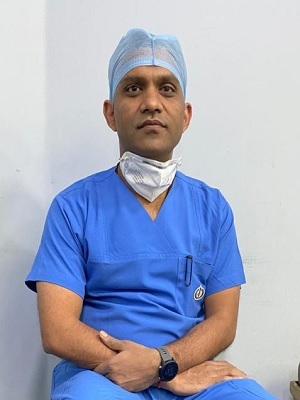ENT cancer, also known as head and neck cancer, refers to the development of tumors in the structures of the ear, nose, and throat region. These tumors can affect various areas such as the oral cavity, throat, voice box, thyroid gland, salivary glands, and paranasal sinuses.
Early detection and prompt treatment are crucial for improving outcomes and preserving quality of life. If you or your loved ones are experiencing symptoms related to ENT cancer, it's essential to seek specialized care from an experienced team of professionals.
ENT Cancer can develop due to a combination of various factors. While the exact cause of ENT cancer is often unknown, several risk factors have been identified. Understanding these risk factors can help individuals take preventive measures and seek appropriate medical care. Here are some common reasons for ENT cancer:
Tobacco and Alcohol Use: Tobacco use, including smoking cigarettes, cigars, or pipes, is one of the most significant risk factors for developing ENT cancer. Heavy alcohol consumption, especially when combined with tobacco use, further increases the risk.
Human Papillomavirus (HPV) Infection: Certain strains of HPV, a sexually transmitted infection, have been linked to the development of head and neck cancers, particularly oropharyngeal cancer. HPV-related ENT cancers often occur in younger individuals and tend to have a better prognosis.
Prolonged Sun Exposure: Excessive exposure to sunlight, particularly to the lips, can increase the risk of lip cancer. It is crucial to protect the lips from harmful UV radiation by using lip balm with SPF, wearing hats, and avoiding prolonged sun exposure.
Occupational Exposures: Certain occupational exposures, such as exposure to asbestos, wood dust, metal dust, formaldehyde, and certain chemicals, have been associated with an increased risk of developing ENT cancer. Occupational safety measures should be followed to minimize exposure.
Poor Oral Hygiene and Dental Health: Chronic irritation and inflammation of the oral cavity, often caused by poor oral hygiene, gum disease, and missing teeth, can contribute to the development of oral cavity cancers.
Age and Gender: The risk of developing ENT cancer increases with age. Men are more likely to develop ENT cancers than women, although the incidence among women is rising.
Genetic Factors: In some cases, genetic predisposition may play a role in the development of ENT cancer. Certain inherited genetic mutations and family history of head and neck cancers can increase the risk.
It is important to note that having one or more risk factors does not guarantee the development of ENT cancer, and individuals without any risk factors can still develop the disease. Regular medical check-ups, adopting a healthy lifestyle, and avoiding known risk factors can significantly reduce the likelihood of developing ENT cancer. If you have concerns about your risk or are experiencing symptoms, consult with a healthcare professional for a proper evaluation and guidance.
Long-term chronic ulcer or growth in the oral cavity: Individuals with persistent ulcers or growths in the oral cavity, which may be indicative of oral cancer, can seek diagnosis and treatment at the clinic.
Voice change and difficulty in eating and swallowing: Patients experiencing voice changes, as well as difficulties in eating and swallowing, which may be related to vocal cord or larynx cancer, can benefit from the expertise of the clinic.
Thyroid gland tumors: Individuals with tumors or abnormalities in the thyroid gland can receive appropriate evaluation and surgical management at the clinic.
Salivary gland tumors: Patients with tumors affecting the salivary glands, such as the parotid and submandibular glands, can seek treatment options at the clinic.
Paranasal sinus tumors: Individuals with tumors in the paranasal sinuses can avail themselves of the clinic's specialized services for diagnosis and surgical intervention.
Other head and neck tumors: The clinic also caters to patients with various types of head and neck tumors beyond the aforementioned conditions. This includes the availability of robotic surgery for specific cases.
The ENT Cancer Clinic is dedicated to providing comprehensive diagnosis and treatment facilities for patients with head and neck cancers. The clinic specializes in identifying and managing various types of ENT cancers, including oral cancer, throat cancer, laryngeal cancer, thyroid cancer, salivary gland tumors, and other head and neck tumors.
Early Detection: The clinic emphasizes early detection through thorough screenings and diagnostic procedures. Specialized techniques and advanced imaging technologies are employed to identify ENT cancers at their earliest stages, increasing the chances of successful treatment outcomes.
Multidisciplinary Approach: The clinic follows a multidisciplinary approach, involving a team of experienced healthcare professionals, including otolaryngologists, head and neck surgeons, oncologists, radiation therapists, and other specialists. This collaborative approach ensures that patients receive comprehensive and personalized care tailored to their specific condition.
